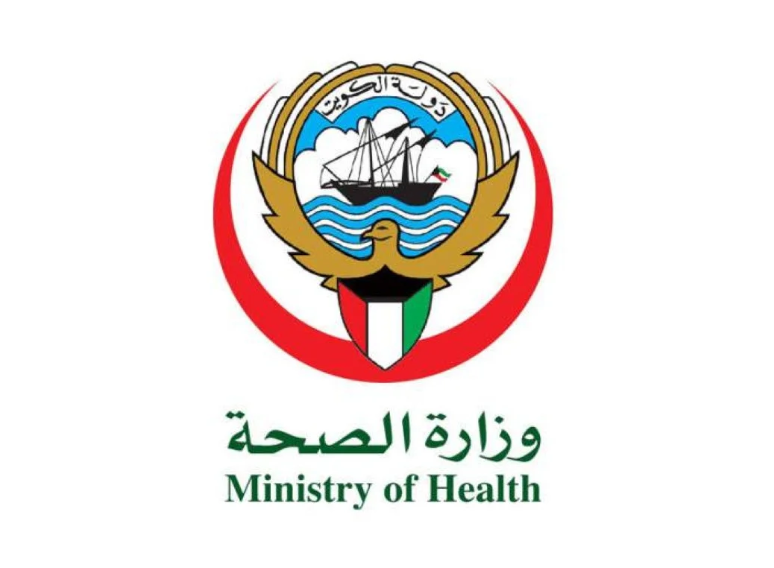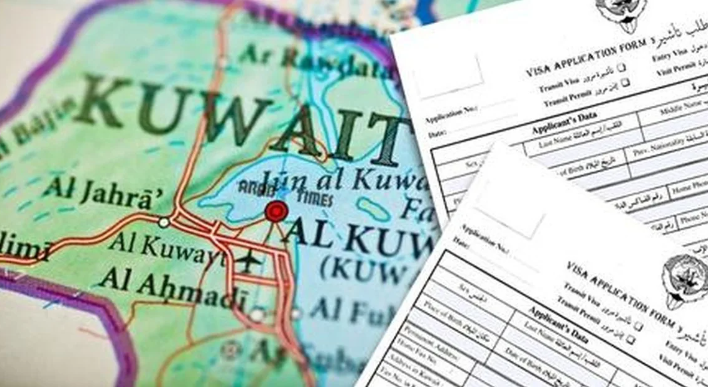Kuwait Increases Health Insurance Fees for Expatriates Starting December 23, 2025
Kuwait has announced a significant increase in health insurance fees for expatriates, effective December 23, 2025. The new fees are part of broader residency and visa reforms. Key Changes: Exemptions: What This Means:
New Kuwait Visa & Residency Fees: What You Must Know
The Ministry of Interior, under the directives of First Deputy Prime Minister and Minister of Interior Sheikh Fahd Al-Yousef, has issued new executive regulations outlining updated fees for entry visas, visit visas, and residence permits for expatriates in Kuwait. Entry & Visit Visa Fees Residence Permit Fees Family / Dependent Residence Fees
New Biometric Registration Requirement for Kuwait Travelers
The Ministry of Interior in Kuwait has stopped conducting biometric fingerprinting at all border points, including Kuwait International Airport, land borders, and seaports. Key Details: Why This Change? • The change aims to reduce congestion at border crossings and streamline travel procedures. Travel Advisory: Action Required:
All You Need to Know About Kuwait’s New Tourist Visa & Visit Rules
Kuwait’s Ministry of Interior has introduced a new visa framework to simplify entry procedures, offering four tourist visa categories: For Tourist Visa Categories 1 and 2, Kuwait offers a flexible range of entry and stay options to suit different travel needs: 2. Multiple-Entry Tourist Visas: These options give travelers flexibility—single-entry for one extended trip, and multiple-entry for repeated short visits over several months—while also allowing Kuwait to maintain control over visitor duration and compliance.
GCC Expats Can Now Visit Kuwait with a Tourist Visa Issued At The Airport
First Deputy Prime Minister and Minister of Interior Sheikh Fahd Al-Yousef issued Ministerial Resolution No. 1386 of 2025 regarding the entry of foreigners residing in one of the Gulf Cooperation Council (GCC) countries into the country with a tourist entry visa, issued directly at the port of entry. The text of the decision states the following:
No Travelling Out Of Kuwait Without an Exit Permit: New Rule for Expats
Expatriate Workers In Kuwait’s Private Sector Will Be Required To Obtain An Official Exit Permit From Their Registered Employers Before Traveling Abroad. Effective July 1, 2025, expatriate workers in Kuwait’s private sector will be required to obtain an official exit permit from their registered employers before traveling abroad. This directive, issued through a ministerial circular by First Deputy Prime Minister and Minister of Interior Sheikh Fahad Al-Yousef, marks a pivotal change aimed at enhancing oversight of expatriate mobility while protecting the rights and interests of both employees and employers. The Public Authority for Manpower has confirmed that the exit permit must contain essential details such as: To facilitate a streamlined process, the permits will be submitted electronically through a designated platform, ensuring accuracy and efficiency. Authorities emphasize that this new system is designed to regulate departures legally, prevent unauthorized travel, and foster transparency between all parties involved. Employers and expatriate workers alike are strongly urged to comply fully with this requirement to avoid any potential legal complications.
Kuwait Cracks Down on Family Visa Rules: 800 KD Salary Minimum Strictly Enforced
Based on Ministerial Decision No. 56 of 2024, expatriates applying for family residency visas in Kuwait must have a minimum monthly salary of 800 Kuwaiti Dinars, and their job must correspond to their academic qualification. In July 2024, the decision was amended to include expatriates without a university degree, provided their salary is 800 KD or more. In May 2025, the Ministry of Interior announced strict enforcement measures against violators. Expatriates who obtained family residency visas based on the 800 KD salary requirement but whose income later fell below this threshold were given a one-month grace period to correct their legal status or to return their families to their home countries.
Kuwait Enforces Stricter Rules on Job and Qualification Changes
Ministerial Circular No. 1 of 2025 Key Provisions of the Circular: Modifying a worker’s job title or academic qualification is now prohibited if: This applies to: Objectives of the Circular: Impact on Employers and HR: Action Required:
All What You Need To Know About Visa On Arrival In Kuwait
Visa on Arrival Conditions: Profession Eligibility: Countries Eligible for Visa on Arrival in Kuwait: Andorra, Australia, Austria, Belgium, Bhutan, Brunei, Bulgaria, Cambodia, Canada, Croatia, Cyprus, Czech Republic, Denmark, Estonia, Finland, France ,Georgia ,Germany, Greece, Hong Kong, Hungary, Iceland, Ireland, Italy, Japan ,Laos, Latvia, Liechtenstein, Lithuania ,Luxembourg, Malaysia, Malta, Monaco, Netherlands, New Zealand, Norway, Poland, Portugal, Romania, San Marino, Serbia, Singapore, Slovakia, Slovenia, South Korea, Spain, Sweden, Switzerland, Turkey, Ukraine, United Kingdom, United States, Vatican City
All What You Need To Know About Kuwait EVisa For GCC Expats
To apply for a Kuwait eVisa, GCC expatriates must meet all of the following conditions: To complete the eVisa application, the following documents are needed: Profession Verification (if applicable): Work ID or employment certificate to prove profession. Passport Copy: Clear digital copy of the passport’s biodata page. GCC Residency Proof: Copy of valid residency permit from the GCC country. Return Ticket: Proof of onward or return travel. Passport-Sized Photo: Recent photo with a white background. Accommodation Details: Hotel booking or other proof of stay in Kuwait. Follow these steps to apply for the Kuwait eVisa: Visit the eVisa PortalApply online through one of the official sites:🔗 https://evisa.moi.gov.kw🔗 https://kuwaitvisa.moi.gov.kw
Kuwait’s Economy 2025
Economic Overview In January 2025, Kuwait’s economy exhibited signs of recovery following a contraction in 2024. The non-oil sector, encompassing real estate, manufacturing, and transport, played a pivotal role in this resurgence. Notably, the Al-Zour refinery operated at full capacity, bolstering the manufacturing sector. Lower inflation rates and reduced interest rates further stimulated private consumption and investment. However, oil production saw only a modest increase of 3% year-on-year, reaching 2.9 million barrels per day, due to extended OPEC+ production cuts. coface.com The Kuwait All Share Index reflected this economic momentum, recording a 5.7% gain in January 2025. Sectors such as oil & gas, real estate, consumer discretionary, and banking experienced significant growth, with increases of 11.7%, 11.1%, 7.6%, and 7.3% respectively. This robust performance underscores investor confidence in Kuwait’s economic prospects. kanebridgenewsme.com Political Developments In May 2024, Emir Sheikh Mishal Al-Ahmad Al-Jaber Al-Sabah dissolved the National Assembly and suspended certain constitutional articles for up to four years, aiming to resolve prolonged political deadlock. This move is anticipated to expedite policy-making and facilitate the implementation of essential fiscal reforms. coface.com The 46th Cabinet, formed in May 2024 under Prime Minister Sheikh Ahmad Abdullah Al-Ahmad, has undergone several reshuffles to enhance governance. Notably, on February 4, 2025, Sheikh Abdullah Ali Abdullah Al-Salem Al-Sabah was appointed as Minister of Defense, reflecting ongoing efforts to strengthen the executive branch. en.wikipedia.org Legal Reforms Aligning with global tax standards, Kuwait announced the implementation of a 15% minimum top-up tax on multinational enterprises, effective January 2025. This initiative aims to diversify income sources and reduce reliance on oil revenues. reuters.com Additionally, the government is considering the introduction of a unified corporate income tax, potentially up to 9%, to streamline the existing tax system. While still under discussion, this reform signifies Kuwait’s commitment to fiscal sustainability and economic diversification. practiceguides.chambers.com Market Dynamics Kuwait’s financial sector remains robust, with banks maintaining strong capital positions and profitability. The Central Bank of Kuwait’s prudent oversight has ensured resilience amid global economic fluctuations. Notably, the sector has witnessed consolidation, exemplified by Kuwait Finance House’s acquisition of Bahrain-based Ahli United Bank, aiming to enhance competitiveness and financial stability. spglobal.com In the energy sector, Kuwait Oil Company announced a significant hydrocarbon discovery at the Al-Jlaiaa offshore field in January 2025. This discovery is poised to augment Kuwait’s oil and gas reserves, reinforcing its position in the global energy market. en.wikipedia.org Furthermore, QatarEnergy and Kuwait Petroleum Corporation signed a 15-year agreement in August 2024 for the supply of 3 million tons per annum of liquefied natural gas to Kuwait, commencing in January 2025. This deal aims to meet Kuwait’s growing energy demands, particularly during peak consumption periods. reuters.com Conclusion January 2025 marked a period of economic revitalization and strategic reforms in Kuwait. The government’s proactive measures in political restructuring, legal reforms, and market consolidation underscore its commitment to economic diversification and fiscal sustainability. These developments position Kuwait favorably for sustained growth and resilience in the face of global economic challenges.
Kuwait’s Economy 2024
Executive Summary Kuwait’s economic landscape in October 2024 reflected a mixed outlook. While GDP is forecasted to contract by approximately 3.2% due to OPEC+ oil production cuts, non-oil sectors showed moderate growth, driven by consumer spending and infrastructure projects like the Al-Zour refinery. Inflation is on a downward trajectory, expected to average 3.1% this year. Fiscal reforms are underway to reduce oil dependency, and recent political changes may accelerate the pace of economic diversification. Businesses should focus on emerging opportunities in non-oil sectors and monitor regulatory reforms closely, particularly in compliance and tax policy. Economic Overview GDP Growth: Kuwait’s GDP is projected to decline by 3.2% in 2024, impacted by OPEC+ production limits and sluggish oil exports. Growth is expected to rebound slightly by 2.8% in 2025 as oil cuts ease. Non-oil sectors, especially in consumer goods and manufacturing, continue to show resilience Inflation Rates: Inflation has moderated to 3.1% as of October, with further easing expected into 2025. Rising housing costs and consumer demand contributed to 2023’s higher rates, but tighter monetary policy and stable supply chains have helped mitigate these pressures Unemployment Rates: Kuwait’s unemployment rate stands at approximately 2.1%, reflecting an increase in non-Kuwaiti labor force participation in private sectors like construction and retail. Unemployment among Kuwaiti nationals, particularly women, remains high at around 5.8% Key Economic Indicators: Oil Sector: Ongoing OPEC+ cuts weigh on crude output, but operations like the Al-Zour refinery offer growth in refining capacity. Construction & Real Estate: High activity continues, supported by domestic demand and government-backed projects. Services: Growth in consumer sectors is stable, with bank lending supporting retail and household expenditures Political and Regulatory Updates Government Policies: The government’s fiscal strategy focuses on reducing oil dependency by enhancing tax revenues and attracting foreign direct investment. The introduction of VAT is being considered to align with GCC practices and broaden the tax base Regulatory Changes: Political shifts in 2024 have led to expedited decision-making processes, potentially streamlining economic reform implementation. The new executive has prioritized reforms to improve private sector competitiveness and reduce barriers for foreign businesses International Relations: Kuwait maintains robust relations with GCC members and international allies. Its ongoing alignment with OPEC+ policies underscores Kuwait’s commitment to regional oil market stability Market Analysis Industry Performance: While oil production has contracted, manufacturing and construction sectors continue to perform well, particularly with the Al-Zour refinery reaching full operation. Real estate sales have surged, driven by strong demand for residential and commercial properties Market Opportunities: Non-oil sectors, particularly retail and banking, present growth opportunities as consumer confidence remains solid. Infrastructure projects, supported by government expenditure, are also projected to drive growth Competitive Landscape: Kuwait’s oil reliance places it in a volatile position relative to GCC neighbors diversifying more aggressively. However, investment in domestic sectors and government reforms suggest an increasing focus on competitiveness Legal and Compliance Updates New Legislation: VAT and other indirect taxes are anticipated, which could impact operational costs for businesses. Additionally, anti-money laundering laws have been strengthened, requiring tighter compliance controls Compliance Requirements: Kuwait’s Central Bank continues to enforce strong financial regulations, with particular focus on AML compliance. New licensing requirements are also expected to ensure greater regulatory oversight in non-oil sectors Risk Assessment: Given the high reliance on hydrocarbons, businesses should consider market volatility and be prepared for potential tax policy adjustments as the government seeks to stabilize finances Human Resources and Labor Market Employment Laws: Kuwait’s labor laws prioritize employment of nationals in the public sector. New private sector policies encourage local employment but face challenges due to skill gaps Labor Market Trends: Kuwait’s labor market remains segmented. Expatriate employment in private sectors is rising, while local employment is mainly in government roles. High youth unemployment, particularly among women, highlights ongoing challenges Talent Acquisition: The private sector’s reliance on expatriates for skilled roles reflects a limited local talent pool, particularly in specialized fields. Strategies to attract more Kuwaitis to the private sector may influence hiring practices Infrastructure and Real Estate Developments Major Projects: Infrastructure remains a government priority, with significant projects like the Al-Zour refinery now fully operational. The government is also planning residential housing developments to address rising demand Real Estate Trends: Demand for residential and commercial properties remains high, driven by local demand and recent upticks in FDI. Increased real estate activity in urban areas suggests opportunities for developers Cultural and Social Insights Cultural Events: October saw events promoting local culture and arts, enhancing Kuwait’s tourism appeal and reflecting government efforts to diversify the economy through cultural investments Social Trends: Kuwait’s focus on diversifying its economy has led to increased awareness of consumer-driven sectors, influencing retail and hospitality industries to innovate and attract local consumers References World Economic Outlook Database, October 2024 – IMF: https://www.imf.org Kuwait Economic Indicators – FocusEconomics: https://www.focus-economics.com Kuwait GDP Forecast – KUNA: https://www.kuna.net.kw NBK Macro Outlook: Kuwait – NBK: https://www.nbk.com IMF on Kuwait’s Economic Needs – AGBI: https://www.agbi.com World Bank Kuwait Economic Report: https://thedocs.worldbank.org Kuwait Central Bank Financial Stability Report: https://www.cbk.gov.kw Oxford Business Group – Kuwait Economic Insights: https://www.oxfordbusinessgroup.com Kuwait Inflation and Fiscal Data – Investec: https://www.investec.com Kuwait’s Oil & Non-Oil Sector Analysis – FocusEconomics: https://www.focus-economics.com






















